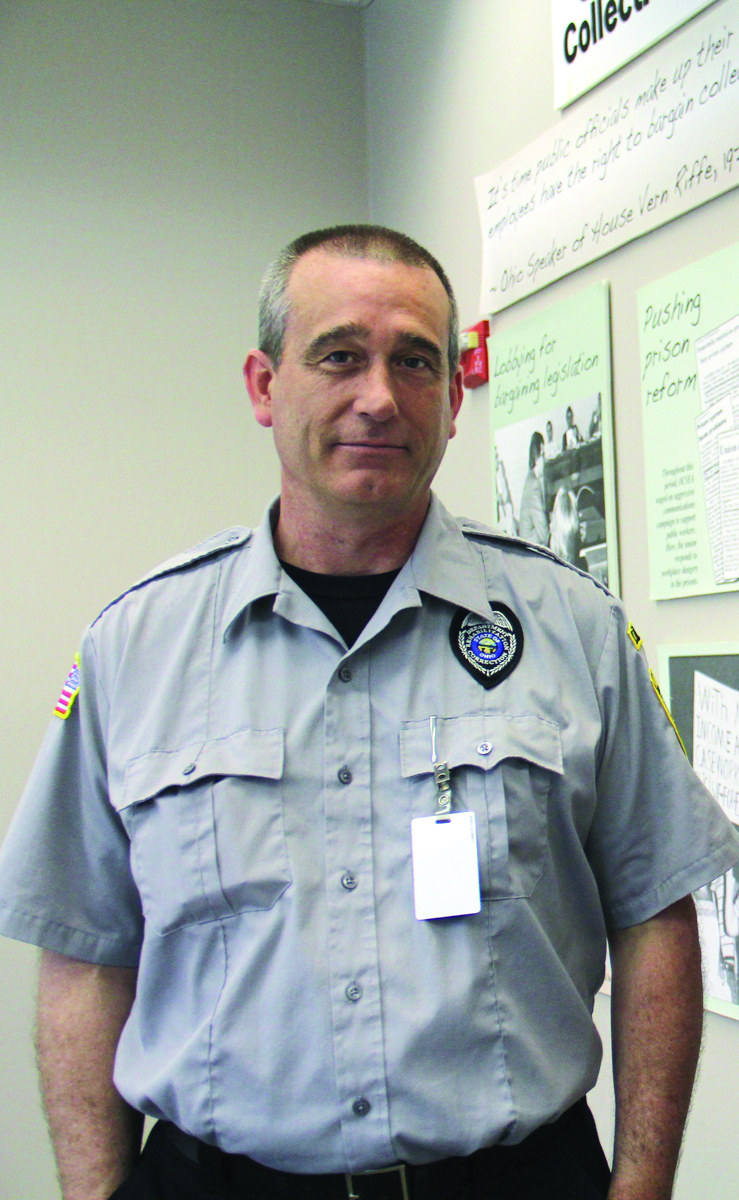
Editor’s Note: The following is a story from the front lines of the battle against the coronavirus. During National Correctional Officers and Employees Week, we feature the story of OCSEA/AFSCME Local 11 member Brian Miller, president of Chapter 5190, who is recovering from COVID-19. Marion County, where Miller works, has the eighth highest number of cases per resident in the United States, according to a New York Times analysis. Miller was one of three corrections officers who urged Congress last week to help financially strapped state and local governments.
“My name is Brian Miller and I’ve worked as a correctional officer at Marion Correctional Institute for 20 years.
“In my facility, we were first notified that a staff member tested positive for the coronavirus around mid-March. Since then, more than 120 staff members have fallen ill. And now I, too, am currently fighting off the COVID-19 infection.
“This pandemic has impacted us heavily; short-staffing has left us without aides to clean and not enough hands on deck to keep control of the facility. As corrections officers who are already overworked, we are taking on even more responsibilities which include cleaning, preparing rooms and sanitizing. We also help the nurses because we send as many as 10 inmates per day to hospitals since they are too ill to be cared for in our facility.
“I believe our facility was too slow to respond. Instead of shutting everything down, restricting movement or limiting staff contact to prevent an outbreak, the process of putting safety measures in place was gradual. Even offenders were concerned that contact wasn’t more restricted, and that the facility was not on lockdown.
“Currently, more than 90% of our inmates have tested positive for coronavirus, in addition to half of our staff being sick. One of our brothers has passed from the disease, and the National Guard has been brought in temporarily to help secure the facility.
“We are so short-staffed that we are pulling four or more double shifts in a row. Those of us who are sick are required to return to work after only three days of being symptom free. Without additional testing, there is no way to know whether we are exposing both staff and offenders.
“Things are beyond a breaking point in the facility. Leadership did not consult the union or get input from people on the ground and now they don’t know if we’ll ever get back to having a full staff.
“Being a corrections officer is a dangerous job on a good day and right now, it’s hell. Our contract promises us $8/hour for hazard pay, which the state has refused to provide because of the budget crisis. Instead, we are putting our lives on the line every day to only receive $1.25/hour for hazard pay because Ohio is running out of money.
“We need personal protective equipment. We need more funding. The National Guard is a stopgap. We are lucky to have them but they only received two days of training and are not a long-term solution. If there are layoffs, it will be absolute chaos.
“If Congress doesn’t deliver additional funding and PPE to us, they are betraying us. When I kick this disease, I will be back on the front lines. I hope Congress will fund us and have our backs when I do.”